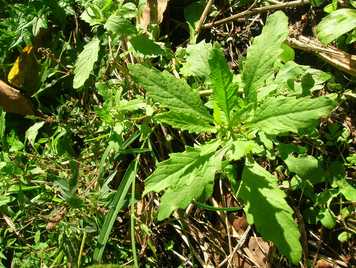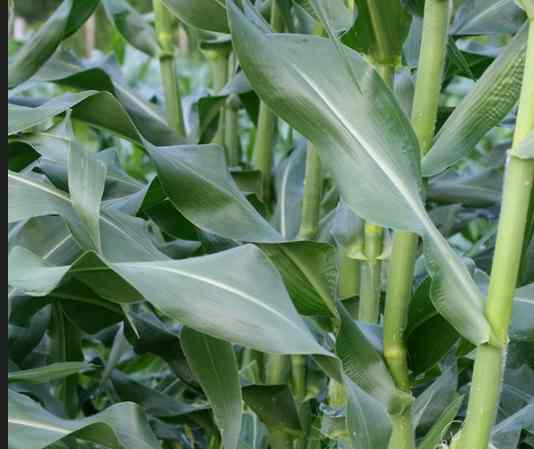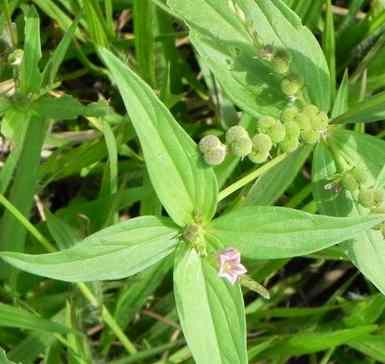
support@yorubalibrary.com
+2348073529208, 07038599574

Ewe Arunpalẹ, also called Ewe Imin in some Yoruba communities, is a powerful medicinal plant widely used in Yoruba traditional medicine. Its English name is Wormseed or Mexican Tea, and its botanical name is Chenopodium ambrosioides.
The name "Arunpalẹ" shows its strong healing ability, especially for stomach-related diseases, worms, and infections. It is not used as a vegetable but is highly valued as a traditional herbal remedy and also has spiritual uses for cleansing and protection.
Ewe Arunpalẹ grows naturally in bushy areas, farmlands, and along roadsides, and it is easily recognized by its strong herbal smell and green serrated leaves.
Key Facts
Category: Leaf
Botanical Name: Chenopodium Ambrosioides
Common Name: Wormseed Or Mexican-Tea
Yoruba name: Ewe Arunpalẹ or Ewe Imin
Igbo Name: Nil
Hausa Name: Nil
Health Benefits
1. Expels Intestinal Worms
Ewe Arunpalẹ (Chenopodium ambrosioides) is famous for its worm-killing power. Yoruba herbalists prepare a strong herbal drink from its leaves to expel intestinal worms, especially in children.
2. Treats Stomach Pain and Indigestion
The boiled leaves are taken as herbal tea to relieve stomach cramps, bloating, and indigestion.
3. Cleanses the Stomach and Detoxifies the Body
The herbal drink made from Arunpalẹ cleanses the digestive system, flushes out toxins, and improves general digestive health.
4. Fever and Malaria Treatment
Boiled Arunpalẹ water is taken to reduce fever, body heat, and malaria symptoms.
5. Relieves Cough and Respiratory Issues
Some Yoruba herbalists mix Arunpalẹ with other herbs to prepare remedies for cough, bronchitis, and mild asthma symptoms.
6. Treats Skin Infections
The crushed leaves are applied directly to skin infections, rashes, and insect bites to reduce swelling and kill germs.
7. Boosts Appetite and Improves General Health
Taking small doses of Arunpalẹ herbal tea helps stimulate appetite and improve overall body wellness.
Want to treat common ailments such as Malaria, Cough, Measles, Typhoid, Pile etc naturally without spending much? Grab a copy of Authentic Herbal Solutions: 15 Common Ailments & Their Natural Cures. A practical eBook recommended for everyone regardless of tribe, religion or association. Order below or Download sample here
AUTHENTIC HERBAL SOLUTION #4KOne Yoruba proverb says "Bí olóde ò kú, òde rè kì í wu Gbégi". Do you know that Gbégi is actually a leaf/plant? Get Yoruba Proverbs on Plants and Herbs, which is a collection of Untold Wisdoms Hidden in Leaf and plants comprising their Life Applications & Moral Teachings. Order below or download sample here
YORUBA PROVERBS ON PLANTS #4KSpiritual Use
1. Cleansing Bad Luck and Removing Negative Energy
Ewe Arunpalẹ is soaked in water and used for early morning spiritual baths to remove bad luck, evil energy, and spiritual blockages.
2. Protection Against Evil Spirits and Witchcraft
The leaves are placed at doorways or burned as incense in Yoruba homes to drive away evil spirits and witchcraft attacks.
3. Breaking Minor Curses and Evil Charms
Traditional herbalists use Arunpalẹ in herbal mixtures to break mild curses and neutralize harmful charms.
4. Peace and Harmony in the Home
Some Yoruba families keep Arunpalẹ leaves in specific corners of the house, believing it invites peace and harmony.
5. Healing Spiritually Related Illnesses
When an illness is believed to be spiritually caused, Arunpalẹ is added to herbal baths or drinks for cleansing and healing.
Characteristics
⦁ Physical Appearance –
Ewe Arunpalẹ has green serrated leaves, soft stems, and a strong herbal smell.
⦁ Taste and Smell –
It has a bitter, sharp taste and a very strong aromatic smell when crushed or boiled.
⦁ Growth Pattern –
It grows naturally in bushy areas, farmlands, and along roadsides, especially in rainy seasons.
Functions
⦁ Traditional Medicine –
Used for worms, stomach disorders, fever, cough, and skin infections.
⦁ Spiritual Cleansing –
Removes bad luck, neutralizes charms, and protects against witchcraft.
⦁ Body Cleansing –
Detoxifies and cleanses the digestive system.
Conclusion
Ewe Arunpalẹ, also called Ewe Imin (Wormseed – Chenopodium ambrosioides), is a powerful Yoruba herbal plant valued for its worm-expelling, stomach-cleansing, and fever-treating abilities.
Have you heard of our Yoruba Herb Dictionary? This contains names of Yoruba Leaf, Roots, Barks, Characteristics, Properties & Identification with HD Pictures. Order below or download sample here
A-Z HERBS & LEAF DICTIONARY #4K
Know more about the Yoruba traditional uses and he…

Learn about Ewe Aran, a potent Yoruba medicinal le…